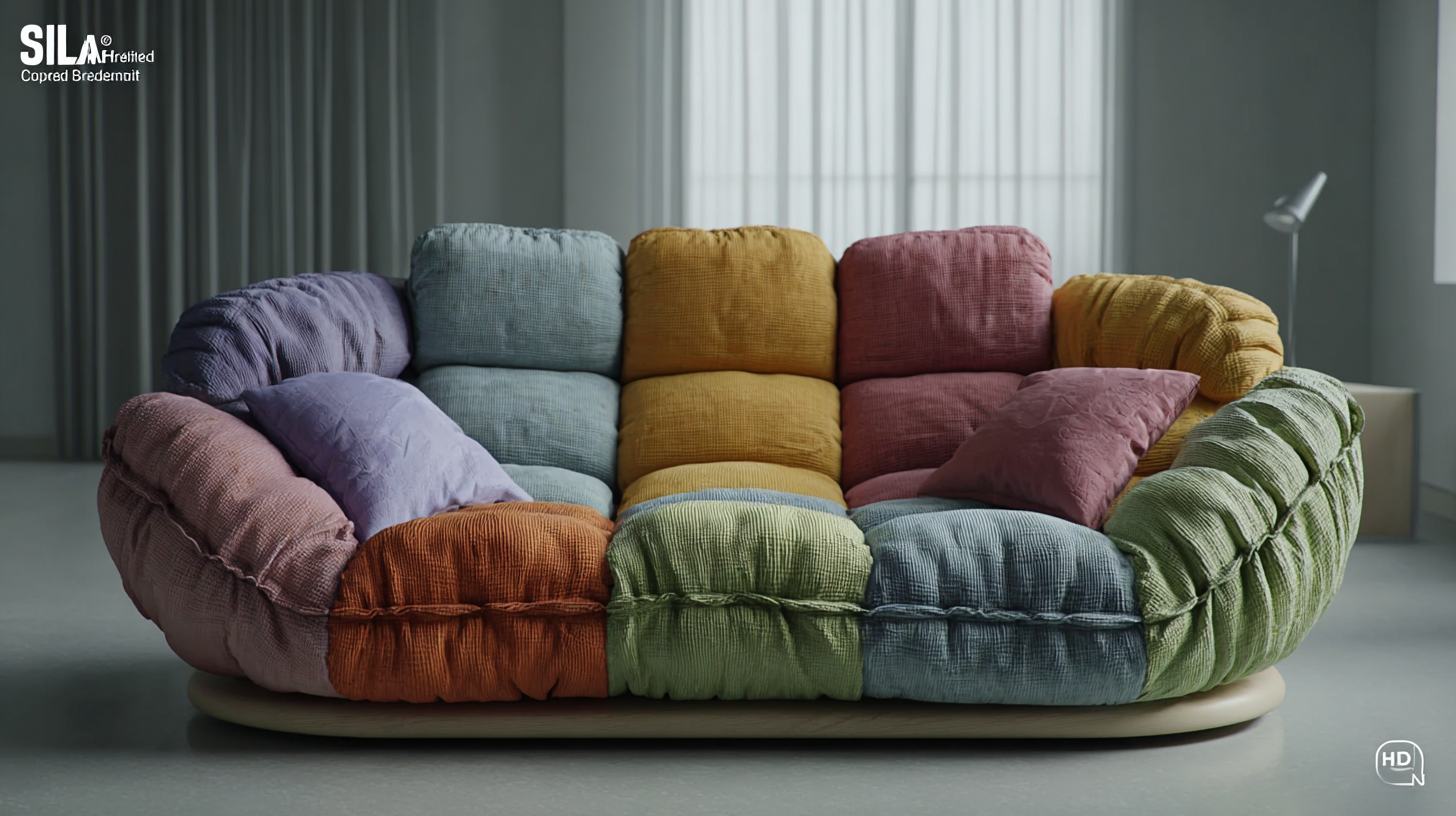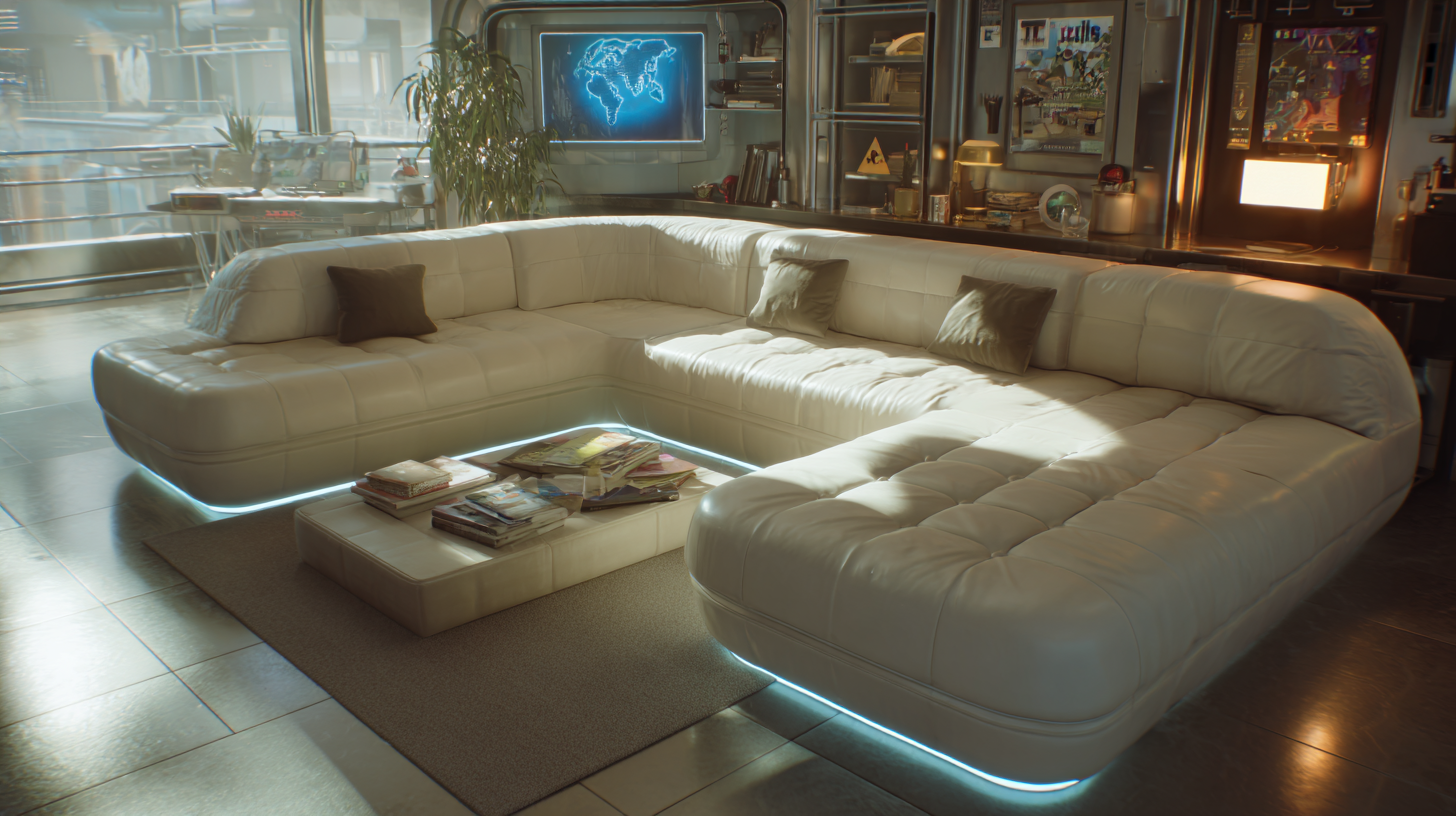Exploring the Future of Modular Couches: Trends and Insights for Global Buyers
As the furniture industry evolves, the demand for versatile and customizable solutions like the modular couch is on the rise, reflecting a significant shift in consumer preferences. According to recent market reports, the global modular sofa market is projected to reach USD 5.5 billion by 2027, driven by an increasing inclination towards multifunctional furniture that adapts to various living spaces. With the growing trend of urbanization and smaller living areas, buyers are increasingly leaning towards modular couches that can be effortlessly rearranged to fit their unique lifestyle needs. In this landscape, Chinese manufacturers are poised to make a lasting impact, leveraging their commitment to quality and innovation to gain respect and trust from global consumers. As we delve into the future of modular couches, we will explore the emerging trends and insights that are shaping this dynamic market, highlighting the remarkable balance of form, function, and sustainability that resonates with today’s buyers.

Understanding Modular Couches: A Shift in Modern Living Space Design
The concept of modular couches has revolutionized modern living spaces, catering to the evolving needs of consumers seeking flexibility and personalization in their furniture. A report by Grand View Research estimates that the global modular sofa market is poised to grow at a compound annual growth rate (CAGR) of 4.9% from 2021 to 2028. This growth can be attributed to changing lifestyles, particularly in urban environments where space is often limited. Modular couches, with their ability to be rearranged and customized, offer a practical solution for maximizing both functionality and style in homes.
Another compelling aspect driving the popularity of modular couches is their adaptability to various design trends, including minimalism and multi-functionality. According to a study by Statista, 65% of consumers now prioritize sustainable and functional design in their purchases, underscoring the importance of versatility in modern furniture. As more buyers seek out modular options, manufacturers are responding by offering an array of configurations and eco-friendly materials, reflecting a shift towards sustainable living. This trend not only enhances the aesthetic appeal of living spaces but also aligns with the global movement towards responsible consumption.
Sustainable Materials and Eco-Friendly Practices in Modular Furniture Production
As the demand for modular couches continues to rise, sustainability has emerged as a critical factor influencing purchasing decisions among global buyers. According to a recent report by the Global Sustainability Initiative, approximately 60% of consumers prefer furniture made from sustainable materials, reflecting a profound shift towards eco-friendly practices.

Modular furniture, known for its versatility and adaptability, is increasingly being produced using recycled materials, such as reclaimed wood and eco-friendly fabrics. This not only reduces the carbon footprint of manufacturing but also appeals to environmentally conscious consumers.
Furthermore, many manufacturers are integrating sustainable practices into their production processes. A study from the Furniture Research Institute indicated that companies adopting eco-friendly manufacturing methods can reduce waste by up to 30% while also enhancing their brand image. Innovative recycling techniques and the use of non-toxic adhesives and finishes are becoming standard in the industry.
As global buyers increasingly prioritize sustainability, the future of modular couches seems to be aligned with eco-conscious initiatives, fostering a market that supports both environmental responsibility and consumer demand for stylish, functional furniture.
Customization Options: Personalizing Your Modular Couch Experience
As the trend of modular couches continues to gain momentum, customization options have become a significant focal point for buyers looking to personalize their living spaces. Modular couches offer a unique blend of versatility and style, allowing homeowners to design their seating arrangements according to their specific needs and preferences. From selecting fabrics and colors to choosing configurations that maximize comfort and utility, the customization journey empowers consumers to truly make their couches their own.

Beyond aesthetic choices, some brands are introducing innovative features that further enhance the personalization experience. Examples include adjustable backrests, integrated storage solutions, and even smart technology that can adapt to the user's seating habits. These advancements not only cater to individual style but also meet practical requirements, transforming a standard couch into a multifunctional piece of furniture. By offering more than just a place to sit, the future of modular couches promises a tailored experience that aligns with the lifestyle of each owner, making every piece truly unique.
Global Market Trends: How Modular Couches Cater to Diverse Consumer Needs
The global market for modular couches is rapidly evolving, driven by shifting consumer preferences and lifestyles. Today's buyers are drawn to the versatility and adaptability that modular designs offer, allowing them to customize their living spaces according to their specific needs. This trend reflects a broader movement towards personalization in home furnishings, where consumers seek furniture that not only complements their interior design but also enhances functionality. For instance, young urban dwellers often need multi-purpose furniture that can easily transform with their living situations, making modular couches an ideal choice.
Additionally, the rise of remote working has influenced consumer behavior, prompting individuals to invest in comfortable yet stylish home office setups. Modular couches can be reconfigured to create a cozy work-from-home environment while still serving as a social space for relaxation. This adaptability is appealing to buyers who prioritize creating a versatile living area that accommodates both work and leisure. As sustainability becomes a key consideration for many consumers, modular couches also provide an eco-friendly option, as they can be updated or expanded without the need for a complete overhaul, thus reducing waste in the long run.
Case Studies: Real-Life Applications of Modular Couches Across Different Environments
Modular couches are rapidly gaining traction in various environments, transforming the way we view furniture versatility. Case studies reveal that in urban apartments, where space is often limited, modular sofas can be reconfigured to fit compact areas while enhancing comfort and aesthetics. According to a recent report by the World Furniture Federation, the modular furniture segment is projected to grow by 15% annually, underscoring its rising popularity among city dwellers looking for adaptable living solutions.
In corporate spaces, modular couches promote collaborative environments. Companies like Google and Facebook have successfully implemented modular seating in their lounges, encouraging creativity and teamwork. A survey by Furniture Today indicated that 65% of employees reported increased collaboration when working in flexible seating arrangements. Such environments demonstrate how thoughtful furniture design can influence workplace dynamics and enhance productivity.
Tip: When choosing modular couches, consider the fabric and color to ensure they align with the environment's theme. Neutral tones can provide a calming effect, while vibrant colors can invigorate a space. Also, prioritize styles that offer both comfort and durability, as these elements are crucial for high-traffic areas.

